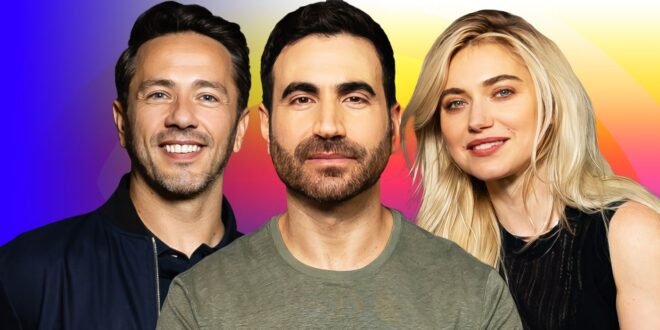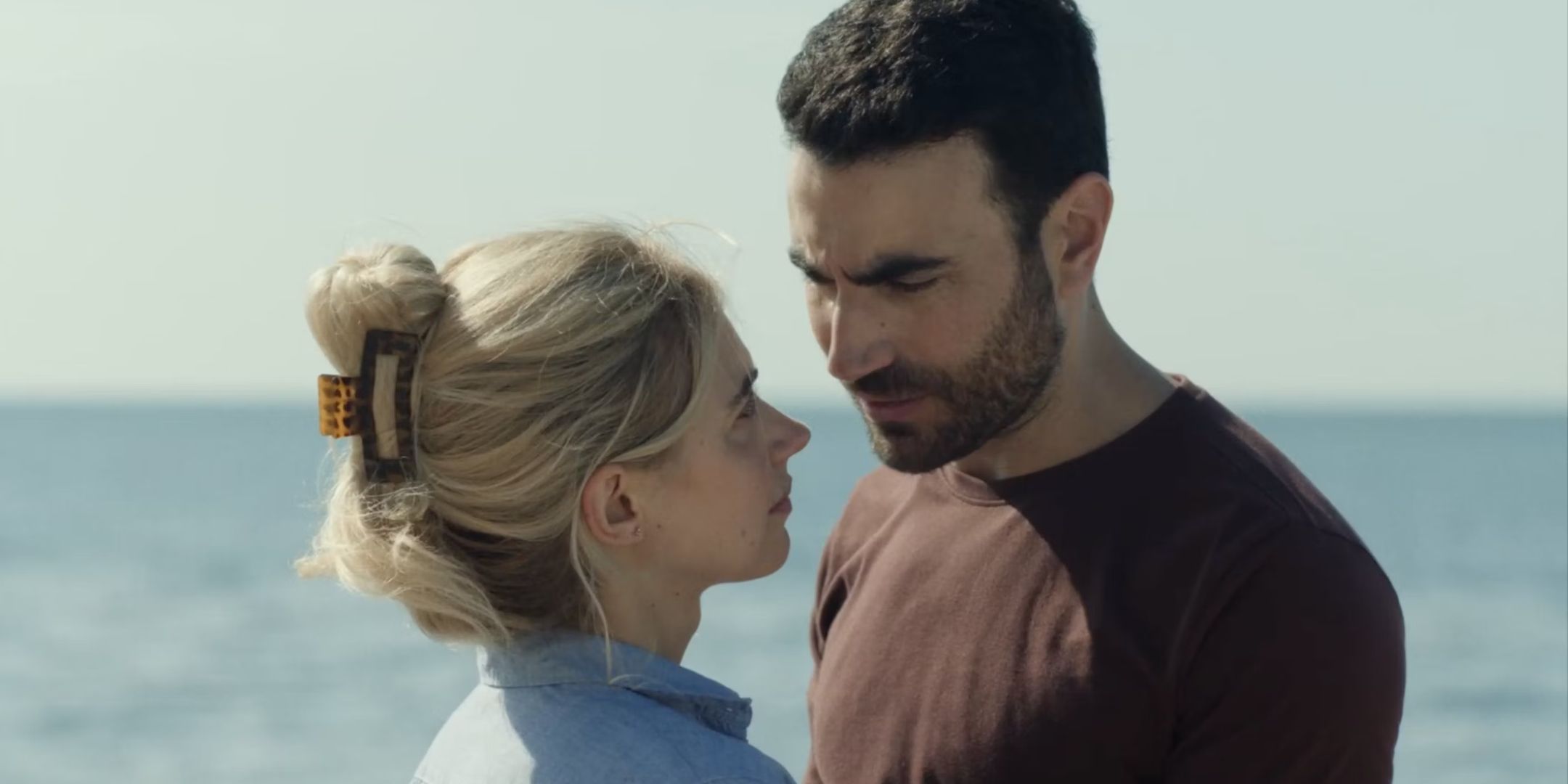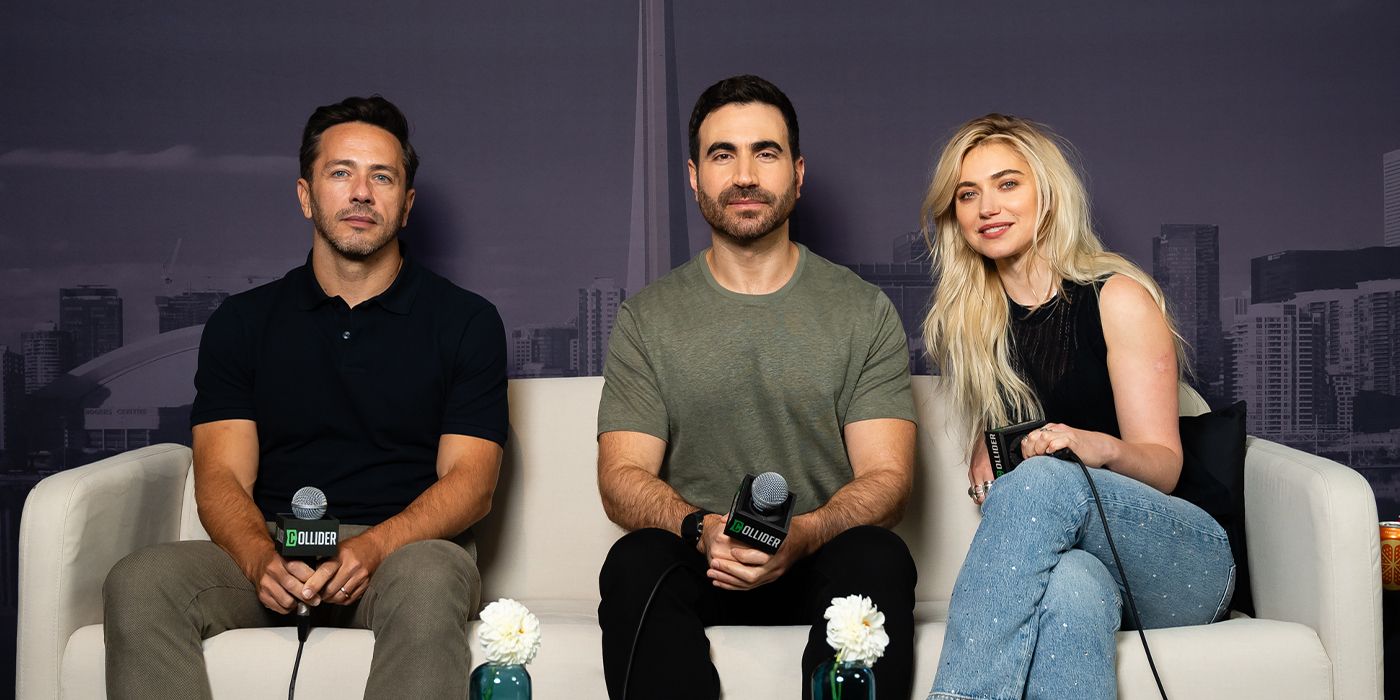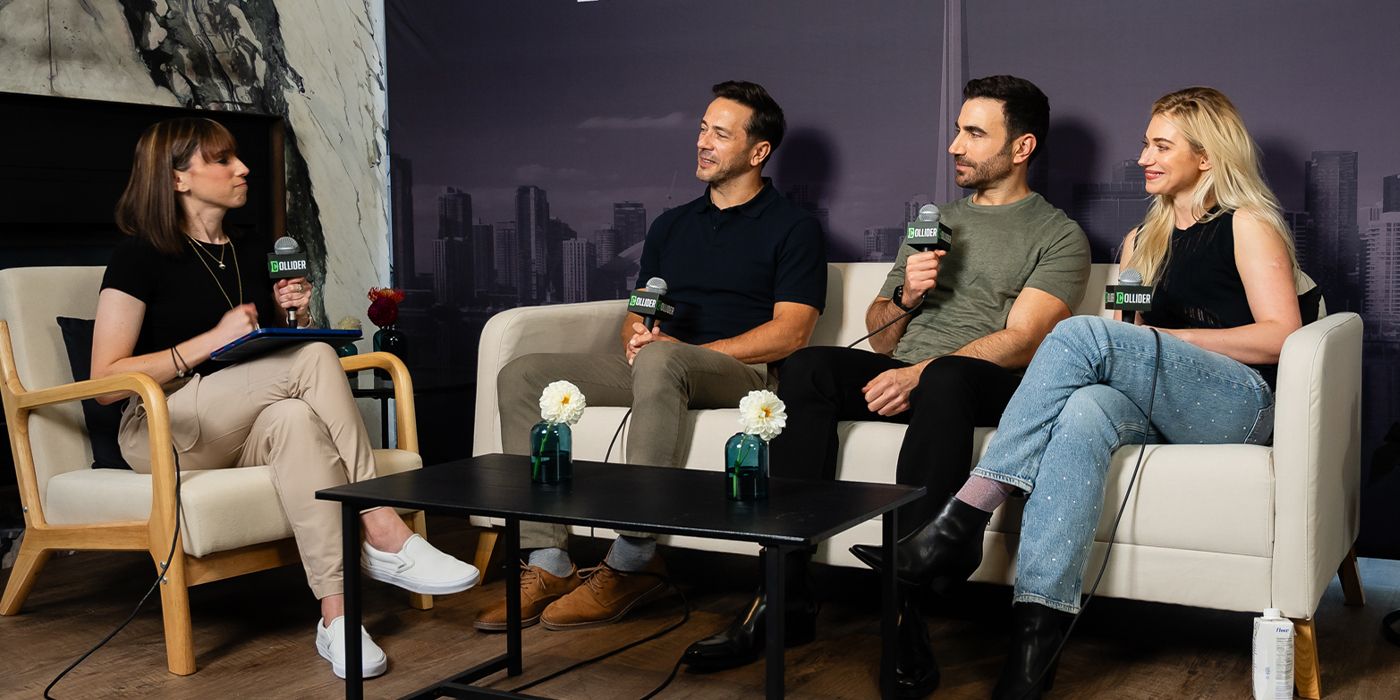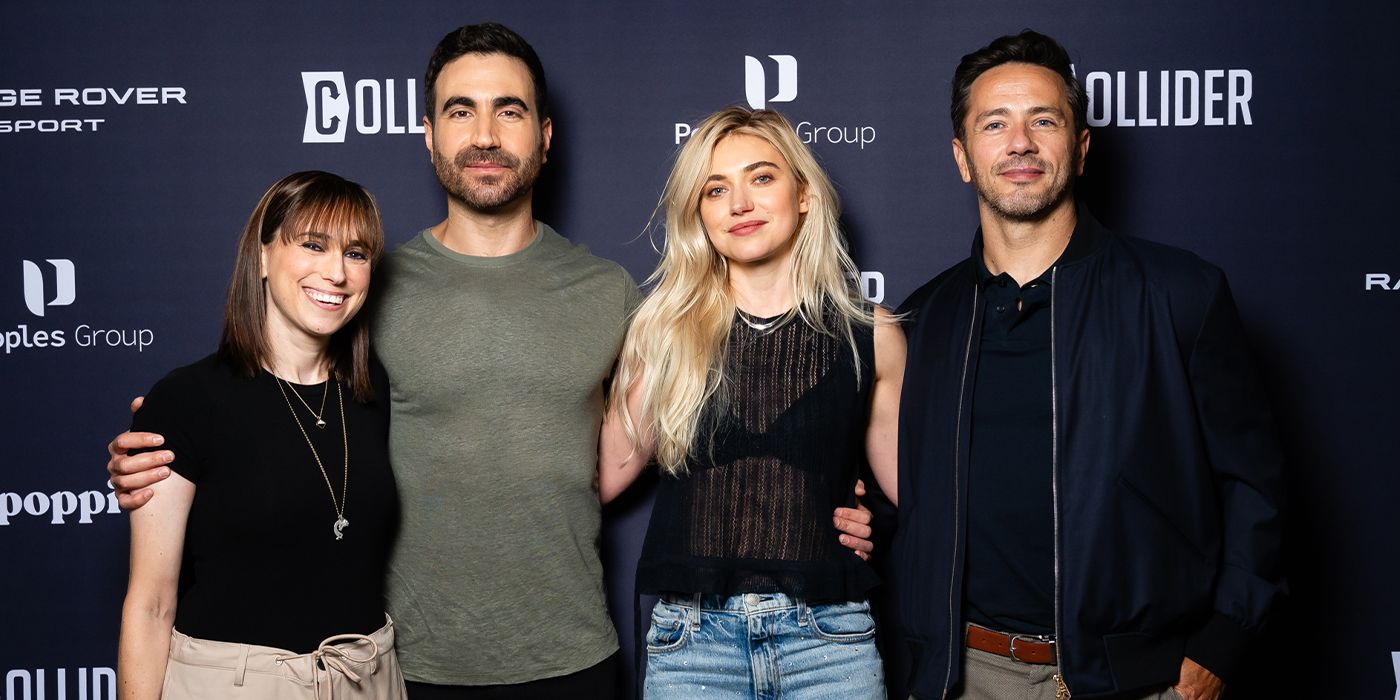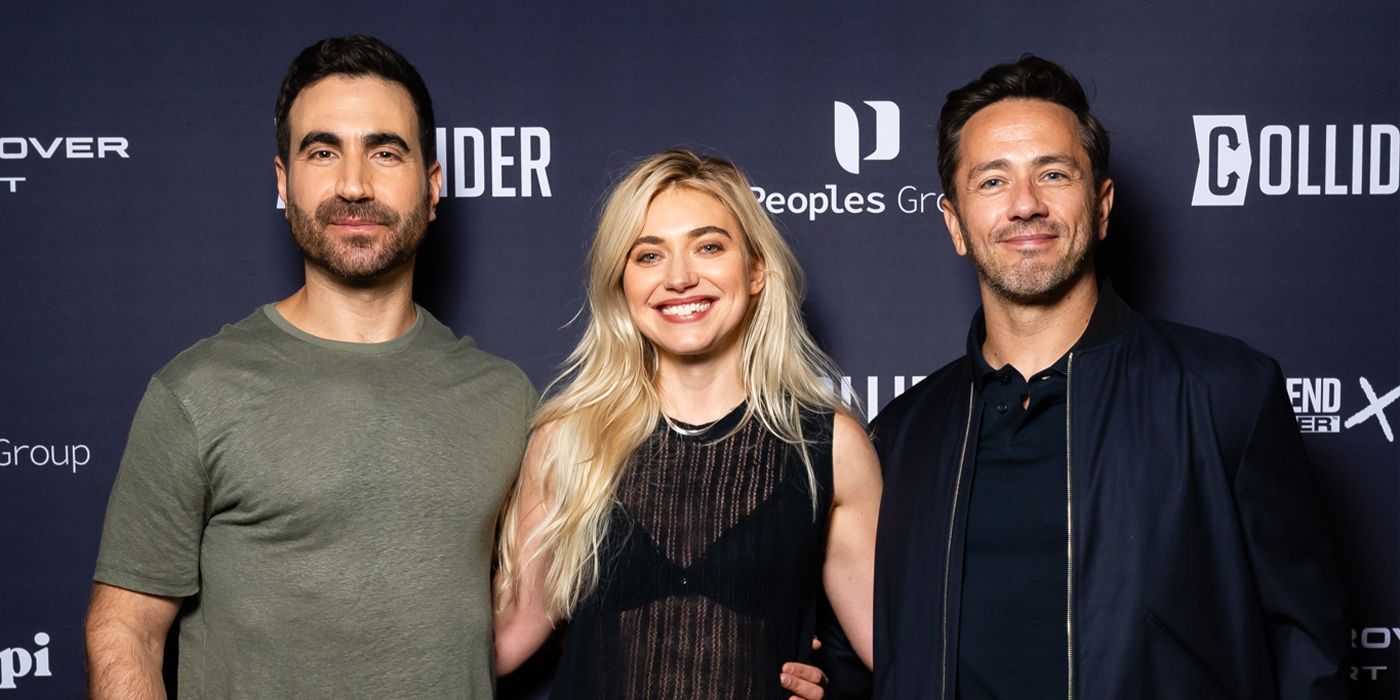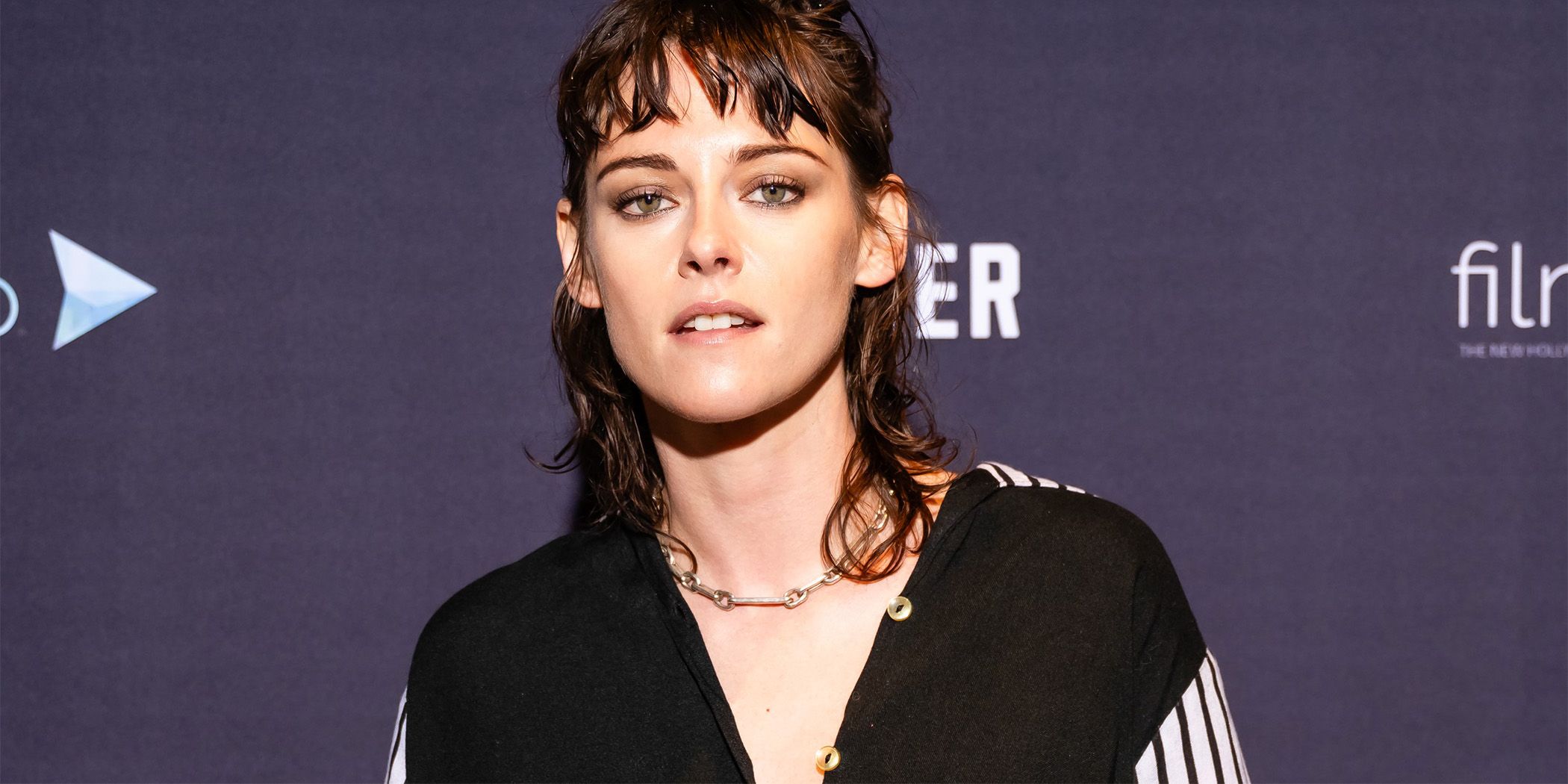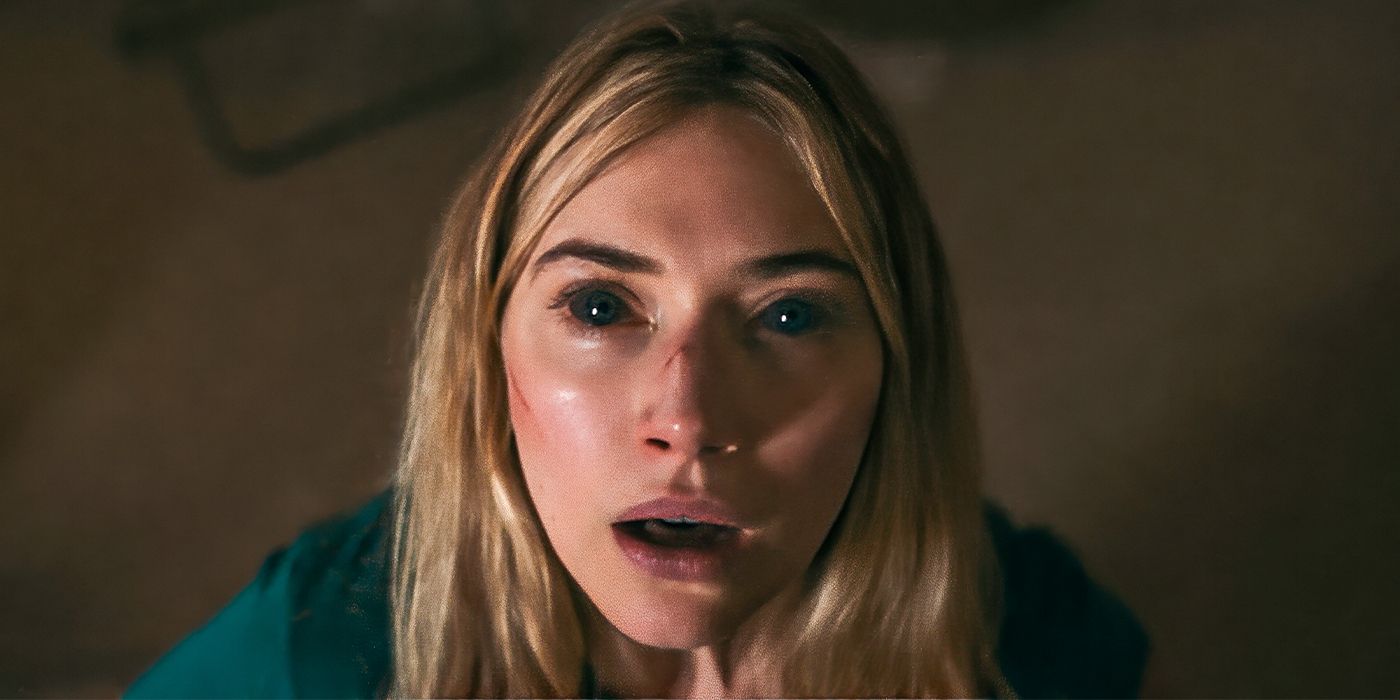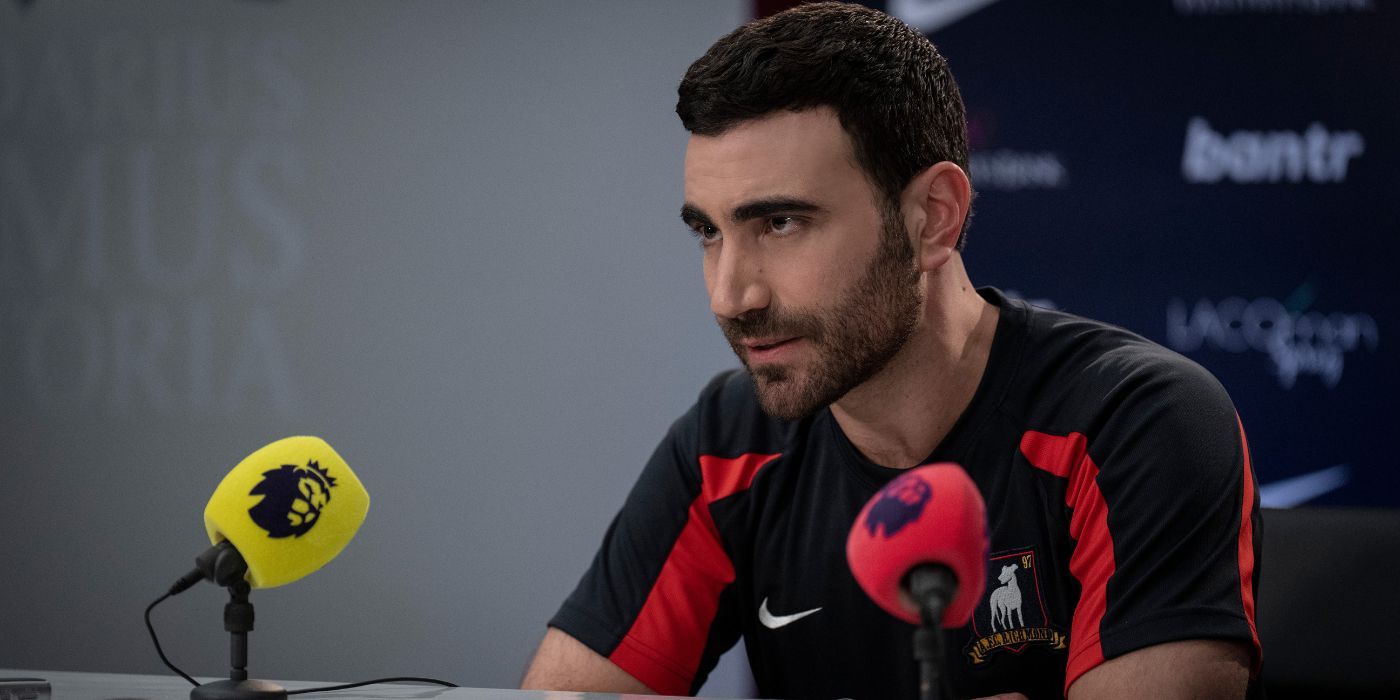The Big Picture
- Collider’s Perri Nemiroff talks to
All of You
‘s William Bridges, Brett Goldstein and Imogen Poots at TIFF 2024. - The cast and crew talk collaboration, using ambiguous time jumps and implementing quantum physics-inspired soulmate tests.
- Poots comments on wrapping up
Outer Range,
and Goldstein silently teases Season 4 of
Ted Lasso
.
Remember the butterflies in your stomach when you felt the rush of your first crush, and how that turned into trudging through a series of tragic first dates in hopes of finding that same feeling again? What if you could take the guesswork out of finding your soulmate? First released at the 2024 Toronto International Film Festival, director William Bridges‘ All of You pulls at this thread in a futuristic setting where the way humans approach love may have changed, but true love itself stays the same.
During TIFF, Collider’s Perri Nemiroff sat down with Bridges, All of You co-writer and star Brett Goldstein, and star Imogen Poots to discuss how this idea that was conjured up 15 years ago was finally transformed into a film. The cast and crew delve into how they collaborated on set, the surprising physics basis of their soulmate testing idea, and using ambiguous time-jumps so the audience has to play detective. Poots also talks about Outer Range coming to a close and Goldstein silently teases future seasons of Ted Lasso. Find out if the soulmate pioneering crew actually believe in soulmates themselves in the video above, or follow along via the transcript below.
What Sparked the Idea for ‘All of You’?
“For the last 10 years, we’ve talked about this idea.”
PERRI NEMIROFF: I have a sense of what your movie is about, but because it’s getting a festival premiere, a lot of our audience will first learn about it here. Will, would you mind giving a brief synopsis of All of You?
WILLIAM BRIDGES: It’s a story set in a world where you can take a test and find out who your soulmate is. It’s two friends walking down the street; one’s gonna take the test, and the other one’s there to support her. She takes the test, and it turns out to be someone else. Then we chronicle the lives of these two friends over the next 15 years as they start to discover that they’ve got more feelings for each other than they thought they had.
Many, many questions about that story, but first, I wanted to talk about you two as collaborators because one of my absolute favorite things in this industry is when you find that creative partner that you know fits you perfectly. Can you tell me how the two of you met and the first thing you saw in the other that signaled to you, “This is an ideal collaborator for me?”
BRETT GOLDSTEIN: We wrote a film together. We were sort of put together by the director of that film, a film called SuperBob, which we made a long time ago. It’s basically secretly a rom-com, but it’s a superhero film disguised as one. While we were making that, we talked a lot about love — he’s married, I’m not — we were talking about soulmates, the idea of it, and then that led us to make this short film, which is kind of what the beginning of this film is. And then, for the last 10 years, we’ve talked about this idea and been obsessed with that short, and like, “There’s more in this.”
BRIDGES: When you meet someone who you know to be a good writer, you just make sure you stay friends with them. [Laughs].
I like that approach.
BRIDGES: But what he said is true, also.
GOLDSTEIN: Why I think we’re a good partnership is that he’s excellent at things that I’m not great at, and I’m excellent at things he’s not great at, and that we fit each other well. Sometimes he might write something and say, “I need you to do a human pass,” and I might be like, “I need the robot pass,” because he’s excellent. This is a joke that we have. It’s not true. He’s a very sensitive, loving boy, but he doesn’t like to admit it.
BRIDGES: Thank you, Brett.
I get it! I can see how it serves this particular story very well, too.
Imogen, I want to build on that with you now, because it can be very difficult to step into a space with two people who have an established working relationship. What was that like for you, and how did their pre-established rapport tee you up for success in the film?
IMOGEN POOTS: I found it really beautiful. Especially with Brett and Will, and then our producers, Andrew [Swett] and Aaron [Ryder], who are on set, it was a very male-dominated set. As a woman in this experience, I had an incredible time. I felt so supported and encouraged, and my opinions were important. That was a rare thing to experience, and the collaboration was great. I was folded right into it from the beginning of the rehearsal. Any ideas were encouraged and accentuated. I had a great time.
I like hearing about when opinions are important! Can you give me an example of a time when you felt inspired on set, you brought that idea to them, and they incorporated it into the final film?
POOTS: It was more just in terms of scenes when we were feeling out. Obviously, they’d lived with this idea for a lot longer. Then, me coming in as an actor, I had my own instincts or opinions, and often you can meet friction there, and that wasn’t the case at all. It was like, “We’re handing it over to you now, and you have to bring what you want to this character.” If it was just even adjustments in the script or tiny things that I felt she might or might not do, but it was very rare. It was pretty much all there on the page. Just even knowing that that space is available was very cool.
‘All of You’ Was a Love Story 15 Years in the Making
“This was a kind of War of the Worlds if it was a love story.”
I jumped ahead a little bit with that question. I want to talk about the early stages of writing the script. Can you tell me the specific idea that started it all, but then I also want to know if you two had a break-story moment, something you came up with along the way that made you feel like it was whole?
BRIDGES: We were talking when we were making this other film. I’m with the same person I was with all that time ago, and Brett was single at the time. We were talking, and he said, “Is she your soulmate?” And I said, “I don’t know.” Out of that —I can’t remember which one of us said it — but it was like, “But what if you could know? What if you could take a test and find out?” The idea just unpacked itself in a conversation over 30 minutes. It was like, “Oh, yeah, friends walking down the street, they’re gonna take the test.” So that’s where the short film came from.
And like Brett said, over the next 15 years, as we went and made other things, we carried on the conversation about those characters and kept going back to their lives and going, “What would they be doing now? If one of them is married? What about if they have kids or if a parent dies or something like that?” We were trying to find milestones in their lives to go, “What would happen then?” I think we got to a point where we were like, “Well, why don’t we just write it? We’ve been talking about it all this time. We clearly want to do more with these characters. Why don’t we use the short as a template for the opening of the movie and tell the story from there?”
GOLDSTEIN: This was a kind of War of the Worlds if it was a love story. There’s this huge idea in it, which is the soulmate test, but we don’t look at the bigger picture — we’re looking at two people. It’s actually a very simple thing. What you’re seeing in the film, you’re seeing moments of their lives going forward, and it’s all the moments that they’re together. You don’t see when they’re not together. There’s almost like a bit of detective work as an audience because every time you return to them, you don’t know what happened in the two years in between. So, you’re like, “Things have changed. What’s new?”
I have so many questions. The first question — and I feel like the answer is gonna be, “Just see the movie” — when your characters take this test, do they have any expectations in terms of what the results of the test will be?
GOLDSTEIN: I feel like that might be it.
POOTS: They have hopes. There are hopes.
BRIDGES: They talk about it because you would, right? If you’re going to go and take the test, you would be definitely thinking about, “Is it going to be my expectation of a perfect person?” Because they’re your soulmates, that’s what you expect them to be. But that might not necessarily be the case. It might be just somebody that you love more than anyone else. That was the guiding principle that we wanted to do with the test. It isn’t somebody that could possibly fix you, but it is somebody that you will care for more than anyone else.
‘All of You’s Soulmate Test is Based on Real Quantum Physics
I was reading that your soulmate test has some real-life theoretical basis. Can you tell me a little bit about the truth in our world that inspired this particular test?
GOLDSTEIN: We went and had a meeting a long time ago with — the worst part of this thing is I can’t remember his name, which is so bad — but he’s the most important quantum theoretical scientist working in England. He’s a very important, incredible man whose name I can’t remember. We went to see him because we had this idea, and we had a whole day with him where he explained quantum physics, which makes your eyeballs melt. The whole time, I was like, “Yeah, I think I understand.”
Then we said, “We’ve had this idea. Would this work?” We pitched it to him, and he was like, “Yeah, that makes sense.” The idea is that there’s a new particle that is found within the human eye that has not been found before. It rotates at a certain frequency that is completely unique to that one person, like a fingerprint. But when someone takes the test, if another person anywhere on the planet has taken the test, their particle will change. It’s quantum entanglement. Simplest form: quantum entanglement. [Laughs]
If the other person with the same kind of frequency in their eye hasn’t taken the test, then their results will show up nil?
GOLDSTEIN: You don’t have anyone yet. They haven’t taken the test yet.
‘All of You’ Keeps the Audience Guessing with Time Jumps
“We wanted the audience to play detective.”
I want to go back to the idea of the time jump element here. For the two of you, that’s an interesting acting challenge. What is the key to showing how they evolve but also keeping them consistent enough that the film has a believable structure to it?
GOLDSTEIN: Beard length. [Laughs]
POOTS: So much of it was our hair! My beard length, your beard length. It was shifting the whole time. I think it’s fun. It was a really cool opportunity as an actor because you get to engage without the gooey parts of yourself when you were younger when you’re more awkward and you’re nervous. Because we’re jumping back and forth the whole time, as well, so it’s quite nice setting those things and then revisiting them again and then what it means to be an adult. Is there even such a thing as an adult with these two people? All of those questions come up. But it was mainly beards. [Laughs].
One other thing that I was reading that I found interesting was that you decided not to specify the time in terms of the time jumps. Why did that feel like the thing that would serve the story best from the viewer’s perspective?
BRIDGES: We wanted the audience to play detective on when we were meeting up with them again. The clues are in the way they greet each other, the dialogue that they have with each other, the event that they’re going to, and the hope is that you find that a fun thing to do. You’ll understand where they are in their relationship quite quickly with the way that they interact with each other straight away. The fun thing is, where is this in their lives? It was always an intention not to put “two years later” and leave it up to the audience to decide because the specific amount of time is irrelevant. It’s just they’ve been apart, and this is the next time they see each other. We put it in the script, but we decided we didn’t want to put it in the movie.
GOLDSTEIN: It was a thing we were worried about, where it was like, “Are we gonna have to put titles up to say this?” Every time we tested it, no one was confused, so we were like, “Great.”
It is abundantly clear that your characters evolve heavily through the other, which makes me especially excited to ask this question. Can you each tell me something about the other as a scene partner that you appreciated and helped you reach something in your own character that you wouldn’t have found without them?
POOTS: I feel like so much of this film, especially everything we had together, wouldn’t exist without the other. I genuinely think Brett, as a person, is an incredible listener. That’s one of his most beautiful traits as an actor, is that there’s a presence there that’s just so engaging. Maybe it’s because you’ve come from this comedy background, but there’s an ability to just go with anything. Everything is sort of elastic and endless and accepted, and you can’t fall. It’s held, and it’s returned, and it’s like the best thing when you find it. He’s a tennis player of a scene partner. I think wanting the other one to really soar, when you really want the person opposite you to be the best version they can and get as close as they can, it’s such a lovely thing to feel for somebody.
There’s no better quality to have than that.
GOLDSTEIN: The film is so dependent because most of the film is just the two of us, and we knew whoever we cast, whatever is between us, that’s the whole film. If that’s not right, we’re fucked. The script’s great, but we’re fucked without that. We met lots of people, we talked to lots of people, and then I had a Zoom with Imogen, and five minutes into the Zoom, we were laughing so much, and I was like, “Oh, I feel like I’ve known you forever,” which is what these characters have to have. It was so simple. I remember I called you immediately. I was like, “Right, it’s Imogen, It’s gotta be Imogen.” We fought and fought to get Imogen.
Imogen is an incredible actor. She’s one of the all-time greats, and I was perhaps a little intimidated by that, like, “I hope I can keep up.” You know what I mean? We were together, so everything was just between us. There are some things in the film that are very, very, very, very vulnerable, and were we not all feeling safe with each other, it would be shit. We really had to go to some places, and I feel very lucky, very moving and special.
Building on that a little bit, I love talking about the unexpected magic you can find on set when things don’t go according to plan. Can you tell me about a particular scene that might have changed most from script to screen for the better?
GOLDSTEIN: It didn’t change dialogue-wise, but there’s a scene [that changed] just in terms of how we shot it. We planned to shoot in this particular location, but when we got to this location, there was this other space that had this particular lighting that almost looked — It was real, and it looked very magic. It looked like God. There are these lights coming through the sky, coming through the windows at the top. We moved it all down there, even though that wasn’t the plan. It meant we were behind, and all that, but that scene is one of the best scenes in the film. It was really like, “Oh, shit! Let’s do this.”
BRIDGES: When you’re making a movie like this, and you’ve got a tight schedule, things go wrong on a daily basis, and that just becomes part of how you make the movie. You have to be flexible, and that comes from actors knowing their characters inside out and knowing the story. It helps that Brett wrote it. Knowing the characters and the story inside out, you can just turn, and you go, “We’re not going over there.” Or, “These next three scenes have to be one scene, so what’s the core point of this? What do we really need to get across here?” That would be a creative conversation between the three of us, and we would work that into a new scene. That happened all the time. Changing dialogue, like, “This isn’t quite working.” We’d talk about it and switch it up. You can’t film without being open to change. We didn’t have the time to be able to afford to be that rigid to anything, so you have to always be flexible.
GOLDSTEIN: I want to say publicly, Will Bridges — it’s is a nice thing… It’s a small film, five weeks. It was such a tight schedule. It was one of those schedules where you look at it and go, “We cannot miss a single thing; otherwise, we don’t have the film.” He’s right. Every day something would go wrong, like the location we had fell through, or something would happen. He was the fucking coolest.
BRIDGES: On the outside.
GOLDSTEIN: He’s like that meme of the dog — the house was on fire, and he was just like, “Beep.” [Laughs] Very, very cool.
This is popping into my head as a follow-up to that. We’re lucky enough to get to hear from the three of you, but no film is made without a slew of other people. I’ll preface this by saying it’s an unfair question. Every single person who works on a film is very, very important. Can you each name an unsung hero on this particular production that wound up being instrumental to pulling this off in that short period?
GOLDSTEIN: Zara [Trott]. Zara was an on-set PA who was fucking amazing and unflappable. Like I described with Will, she’d often be soaking wet, or literally on fire, and she’d be like, “You okay, guys?”
POOTS: She was so chill. And she really respected what the film was in a way. Like she understood the nature to create that space. She was a set PA, but she was so much more than that. I love her so much.
GOLDSTEIN: She was really special.
POOTS: She knew all of our weird neuroses and things like that.
I’m always here for shouting out a PA. It doesn’t happen nearly enough.
BRIDGES: You’re right. It’s hard to pick anyone out, they’re all pretty good.
POOTS: Vic [Boydell] is pretty great.
BRIDGES: Vic, the editor, who I think should be, if she isn’t, a qualified therapist as well. [Laughs] We just need therapists on set. She was great in the edit, pulling things apart, inviting me to look at scenes in a completely different way, different structures. The reason why we can move through time in the way we do is through Vic’s influence, absolutely. I think probably Vic is a very unsung hero.
Do the Cast and Crew of ‘All of You’ Believe in Soulmates?
I have one really big question about all of this for you. It’s kind of personal. Going into the film, did you believe in soulmates and, having made it, did that belief remain the same, or did it evolve because of the experience of working on this film?
BRIDGES: It’s a tough one because when we first started, I used to say, “I don’t believe in soulmates,” even though I’ve been with my wife. I’ve known my wife since college, and we were friends first, and then we had a child together, then we got married and had another child. Looking back over this, having made this film, I’d probably say, yeah, I probably do believe in soulmates. I think I started this like, “No,” even saying, “Well, if I wasn’t married to her, I’d be married to someone else.” But I think not now. Now I’m on camera. [Laughs]. No, I think my opinion since we began this to now has actually gone completely the opposite way, I would say.
GOLDSTEIN: It constantly changes. I definitely think you meet people. Like when we first met, it was like I’ve known [Imogen] forever. There’s some magic in that for sure.
POOTS: I believe in them. I’m very romantic in that way. It’s a very hard path to go down for me. I believe in them, and I also think that there’s something about being magnetized to a person. It’s so mystifying and unknowable, and it should remain so. It’s one of the very best bits about being alive.
I think the unknowable quality is what makes me believe, because my definition of a soulmate constantly evolves, and I believe in whatever the definition needs to be for me at that time. I guess now I’m making it all about me and not a broad definition, but that works for me, and I’ll take it.
BRIDGES: I wonder if the real difference is time — being able to look back over time and say, “Yes.” To look forward, it’s so hard to know, to be like, “Oh, I know what a soulmate is.” But I think if you spend time with someone, you can look back over that time. That’s probably how you would know.
Re-ask me this question in, like, 10 years. Let’s see how my definition changes.
Imogen Poots Says Kristen Stewart Was Born to Direct
“I think she’s one of the greatest directors I’ve ever worked with in my life.”
Before I let you go, I have to ask about a couple of other things. Imogen, the first one on my list is for you, because it’s Kristen Stewart’s feature directorial debut. I spoke with her at Sundance, and at the time, she was saying she was doing everything she could to get the film off the ground, and now you actually did it. I’m curious, from your perspective, what is something about her as a director that makes her a one-of-a-kind voice for this industry?
POOTS: I think she’s one of the greatest directors I’ve ever worked with in my life.
BRIDGES: Wow.
POOTS: [Laughs] Yeah, there you go. She’s really something. She was born to do it. I’m so proud of her. We’d like shout at each other on set like sports coaches. We were both incredibly passionate about the project and had the same energy around it and the stakes were very high for both of us all the time. She has just cared about this for so long, and she did it. I think it was so hard to get it made because of the subject matter, and I think at several moments along the way, anyone would think, “Is this even worth it?” She kept going. She found the right financiers for the project. We didn’t have to censor any of the story because that would have been pointless. She’s done it her way and it’s the only way. I think she’s punk-rock and authentic, and she’s my favorite girl. I think she’s amazing.
Imogen Poots Addresses the ‘Outer Range’ Cancellation
“It’s always sad when something comes to an end.”
Everyone on Collider loves Outer Range and is absolutely devastated that it’s not moving forward. Did you find you got enough closure with that character to move on, and if not, is there any particular element of Autumn you were most eager to dig into more if you got to move forward with her?
POOTS: The show as a whole was so unique. With all of these TV contracts, you sign these things, and they could go for years or not, and you don’t really know. It was so obscure that I think it was such a risk to even make it in the first place and have it commissioned. The fact we got to do it the first time around was incredible. The relationships I made on that job are a huge part of my life now, and I get to take that with me for free. But it’s always sad when something comes to an end.
I also think respecting where it was taken, and perhaps as a truth to the nature of the show, I believe we did tell the story. The story of Outer Range is very much questions, isn’t it? It’s questions about the universe and about faith and about family and all these things. As long as those questions are asked, you’ve done the job. It’s always hard when things end, but I’m really, really proud of what we did and of everybody in it.
[Brett], guess what I’m gonna ask you about. Maybe a little show called Ted Lasso. Obviously, everyone’s eagerly awaiting more. From your perspective, because you’re also a producer on it, I must ask, what is taking so long? But also, is there a particular layer of Roy that you’ve only just started to tap into that you would be most excited to explore more in a Season 4?
GOLDSTEIN: [Soundlessly moving his mouth]
This makes all the sense in the world to me.
GOLDSTEIN: [Continues to soundlessly move his mouth and gesturing emphatically]
I mean this sincerely, that was one of the best answers I’ve received to an upcoming project question.
I’ll throw in one for you too, [Will]. How about Scanners? It’s been around for a little while now. Any chance that is actually going to get the go-ahead soon?
BRIDGES: Oh, you’re asking the wrong person.
GOLDSTEIN: It’s a very good script.
BRIDGES: But we’ll have to wait and see.
Special thanks to MARBL Restaurant for hosting Collider, as well as our additional sponsors Range Rover, the official luxury vehicle partner of the Cinema Center and Collider Media Studio, poppi, Tequila Don Julio, Canada’s premium spring water brand, Legend Water, and People’s Group financial services.
Source link
